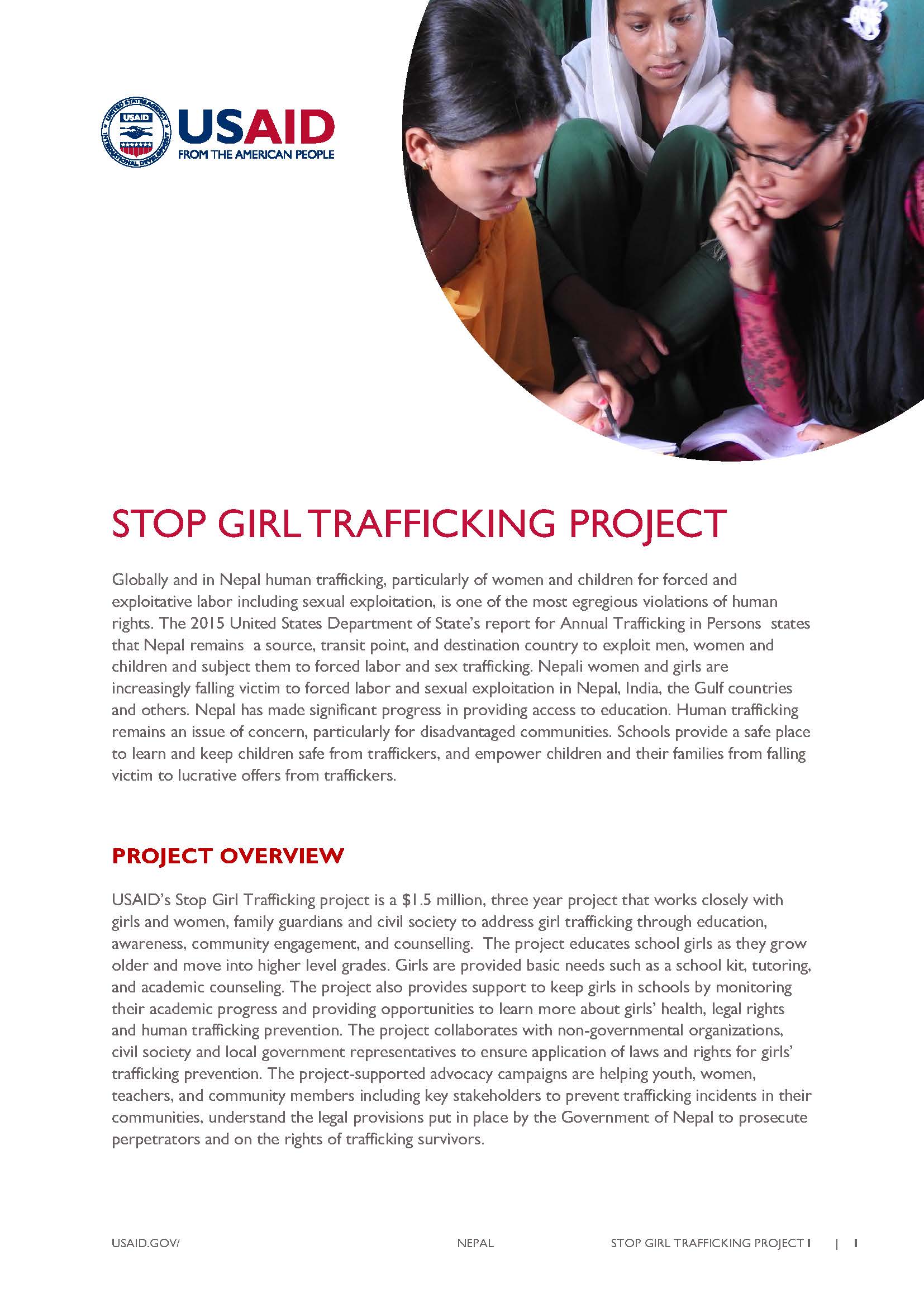Speeches Shim
Fact Sheet: Stop Girl Trafficking Project ![]() (pdf - 351k)
(pdf - 351k)
Globally and in Nepal human trafficking, particularly of women and children for forced and exploitative labor including sexual exploitation, is one of the most egregious violations of human rights. The 2015 United States Department of State’s report for Annual Trafficking in Persons states that Nepal remains a source, transit point, and destination country to exploit men, women and children and subject them to forced labor and sex trafficking. Nepali women and girls are increasingly falling victim to forced labor and sexual exploitation in Nepal, India, the Gulf countries and others. Nepal has made significant progress in providing access to education. Human trafficking remains an issue of concern, particularly for disadvantaged communities. Schools provide a safe place to learn and keep children safe from traffickers, and empower children and their families from falling victim to lucrative offers from traffickers.
PROJECT OVERVIEW
The project works in six trafficking prone districts: Banke, Bardia, Kailali, Kanchenpur, Surkhet and the earthquake-affected district of Sindhupalchowk.
PROJECT ACTIVITIES
- Provide educational support to 3,800 girls from 125 schools in the Mid- and Far Western districts, including the earthquake affected district Sindhupalchowk. In addition, girls in grades 9-10 receive extracurricular activities in health and other life skills, and 110 schools are getting support to enhance existing school infrastructure.
- SGT builds confidence among the girls by creating network for sharing information and an opportunity to access quarterly publication “Nariswor”. Counselling classes are raising awareness about the risk of trafficking, early marriage, and the importance of girls finishing their secondary education.
- Build a greater advocacy by creating a network with key stakeholders in all six districts to work collaboratively on anti-trafficking efforts.
- Girls become alumnae volunteer counselors that continue to educate girls after their graduation. Alumnae volunteers gain self-confidence and independence, while younger girls gain positive peer role models and can visualize their own futures.


Comment
Make a general inquiry or suggest an improvement.